Fleurs du Mal Magazine


Or see the index

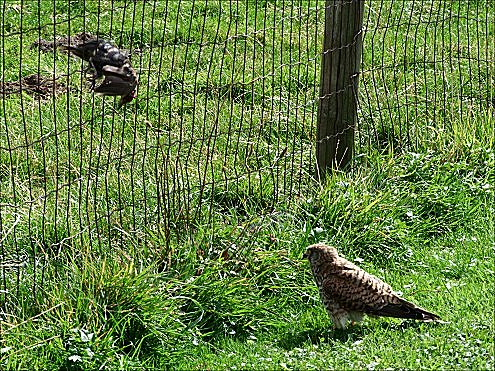
Poem: James Russell Lowell
The Falcon
I know a falcon swift and peerless
As e’er was cradled In the pine;
No bird had ever eye so fearless,
Or wing so strong as this of mine.
The winds not better love to pilot
A cloud with molten gold o’er run,
Than him, a little burning islet,
A star above the coming sun.
For with a lark’s heart he doth tower,
By a glorious upward instinct drawn;
No bee nestles deeper in the flower
Than he in the bursting rose of dawn.
No harmless dove, no bird that singeth,
Shudders to see him overhead;
The rush of his fierce swooping bringeth
To innocent hearts no thrill of dread.
Let fraud and wrong and baseness shiver,
For still between them and the sky
The falcon Truth hangs poised forever
And marks them with his vengeful eye.

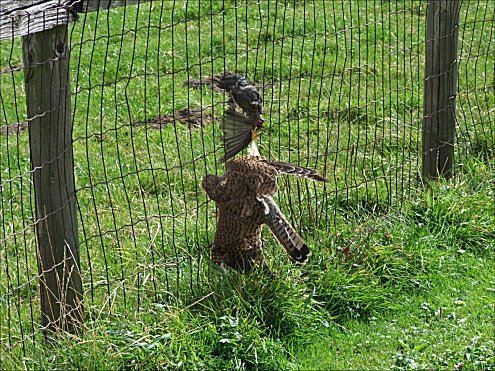
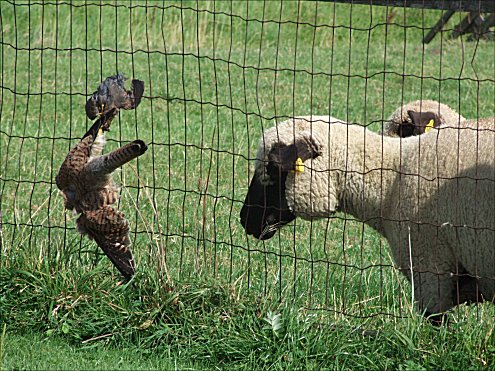

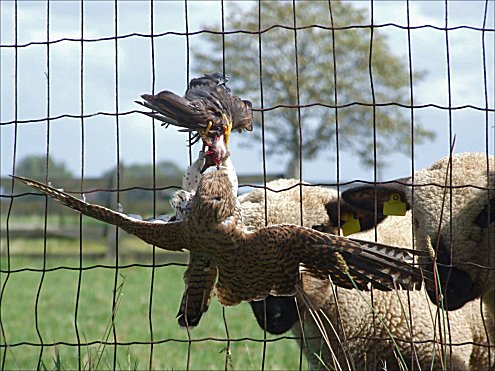
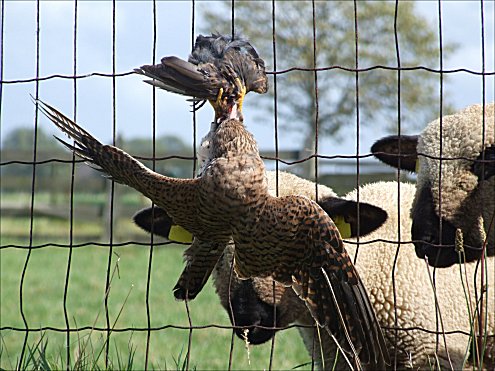

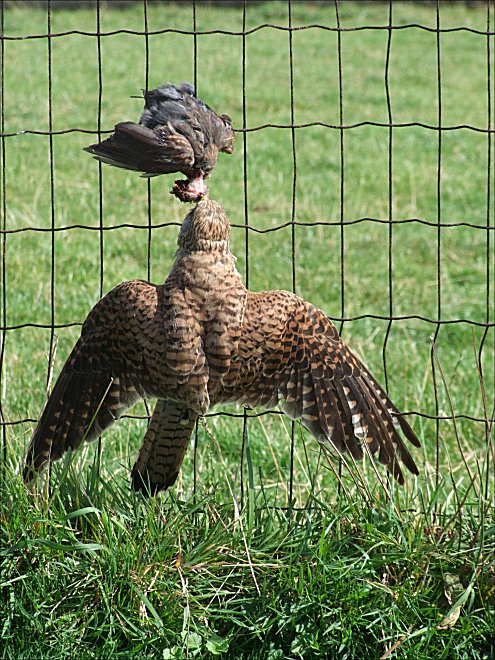
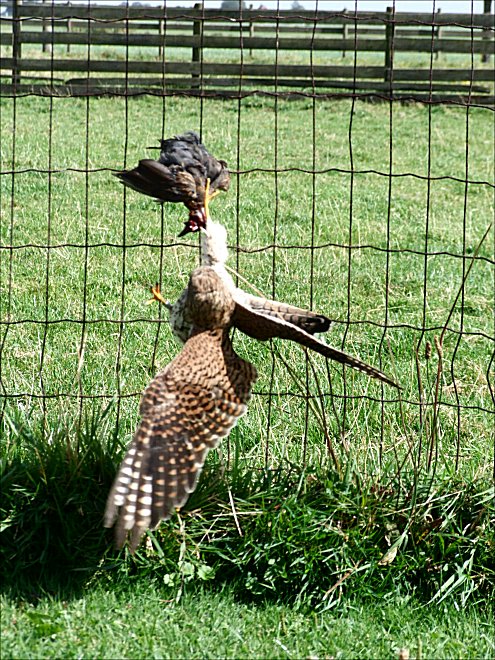
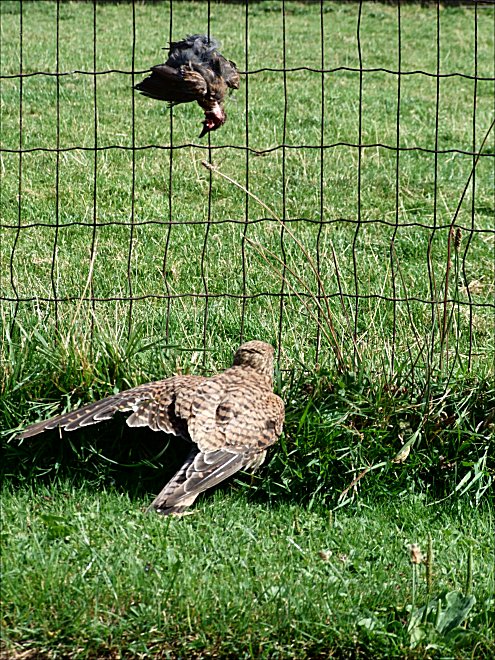

Photos: Co van Gorp
Poem: James Russell Lowell (1819 – 1891)
k e m p i s p o e t r y m a g a z i n e
More in: Archive K-L, Co van Gorp Photos, Department of Birds of Prey
.jpg)
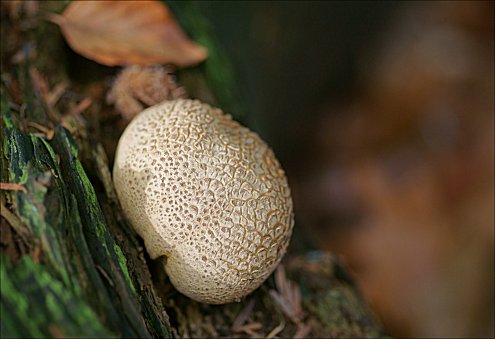

J. H. L e o p o l d
(1865-1925)
H e r f s t
De blaren laten los en op de wind
drijven ze donker langs de grijze lucht,
alsof een vlucht verlate vogels wegtrok.
Onder de bomen hangt een scherpe geur
van vochte grond en van doorweekte blaren;
geen leven, geen geluid in ‘t grille licht,
dat gul door de ijle takken binnenvliet,
en eenzaam valt een schot, een verre knal,
die heel het woud vult, als waar’ ‘t de eigen stem
van ‘t bos, dat in sonore toon verkondigt,
dat ergens op een dichte plek een vogel
getroffen hortend door de takken zakt
en naar beneden ploft, terwijl het bloed
rood langs de bruine veren op de grond drupt.
Uit de bundel: Verzen uit de nalatenschap
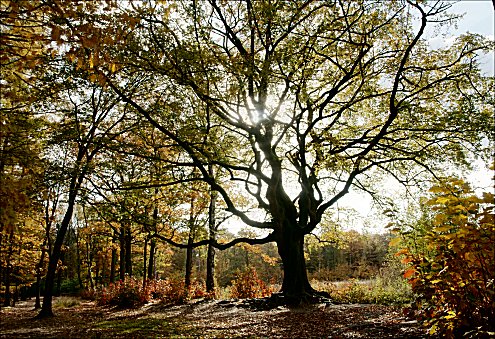

Natuurdagboek Hans Hermans: November 2009
foto’s: Hans Hermans – gedicht: J.H. Leopold
k e m p i s p o e t r y m a g a z i n e
More in: Hans Hermans Photos, Leopold, J.H., MUSEUM OF NATURAL HISTORY - department of ravens & crows, birds of prey, riding a zebra, spring, summer, autumn, winter
.jpg)

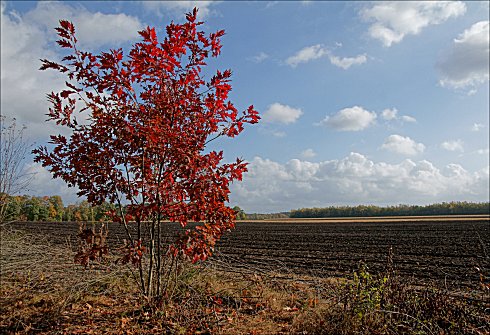
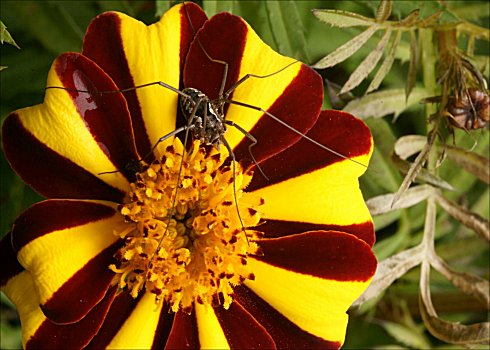
J o h n K e a t s
(1795-1821)
T o A u t u m n
Season of mists and mellow fruitfulness,
Close bosom-friend of the maturing sun;
Conspiring with him how to load and bless
With fruit the vines that round the thatch-eves run;
To bend with apples the moss’d cottage-trees,
And fill all fruit with ripeness to the core;
To swell the gourd, and plump the hazel shells
With a sweet kernel; to set budding more,
And still more, later flowers for the bees,
Until they think warm days will never cease,
For Summer has o’er-brimm’d their clammy cells.
Who hath not seen thee oft amid thy store?
Sometimes whoever seeks abroad may find
Thee sitting careless on a granary floor,
Thy hair soft-lifted by the winnowing wind;
Or on a half-reap’d furrow sound asleep,
Drows’d with the fume of poppies, while thy hook
Spares the next swath and all its twined flowers:
And sometimes like a gleaner thou dost keep
Steady thy laden head across a brook;
Or by a cyder-press, with patient look,
Thou watchest the last oozings hours by hours.
Where are the songs of Spring? Ay, where are they?
Think not of them, thou hast thy music too,–
While barred clouds bloom the soft-dying day,
And touch the stubble-plains with rosy hue;
Then in a wailful choir the small gnats mourn
Among the river sallows, borne aloft
Or sinking as the light wind lives or dies;
And full-grown lambs loud bleat from hilly bourn;
Hedge-crickets sing; and now with treble soft
The red-breast whistles from a garden-croft;
And gathering swallows twitter in the skies.

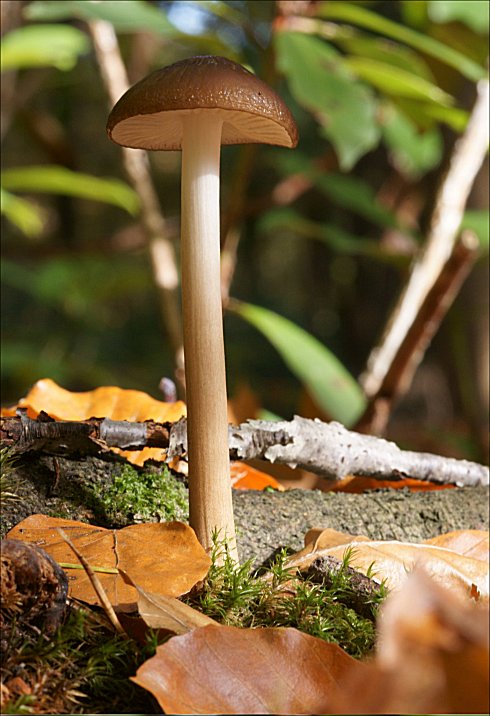
Natuurdagboek Hans Hermans October 2009
Photos Hans Hermans – Poem: John Keats
fleursdumal.nl magazine
More in: 4SEASONS#Autumn, Hans Hermans Photos, John Keats, Keats, John
.jpg)
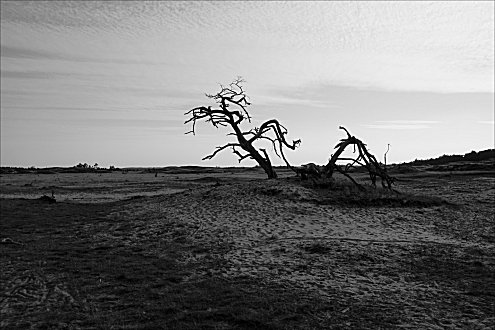
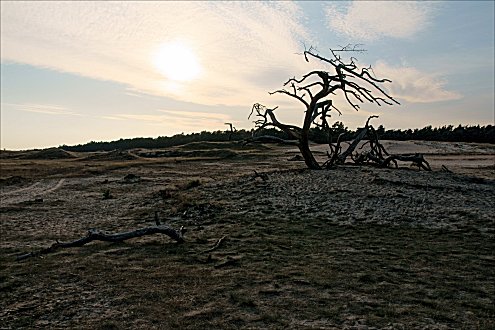
A. C. W. S t a r i n g
(1767-1840)
Een Gelders lied
Ik ben uit Gelders bloed!
Geen vleitoon klinkt mij zoet;
Mijn volksspraak, luttel rond,
Geeft nog de klank terug,
Uit onzer vaadren mond.
Bij de eiken, aan de top
Eens heuvels, wies ik op.
In heiden zonder baan,
Leerde ik, ter jacht geschort,
Mijn eerste treden gaan.
Mijn arm is ‘t wild geducht:
De reebok helpt geen vlucht,
Het zwijn geen scherpe tand,
Als, in mijn dreigend roer,
Een snelle dood ontbrandt.
Ik smaâ de lauwer niet,
Die ‘t koor des Vredes biedt,
Maar schat een andre meer!
De krans, door ‘t zwaard verdiend,
Is ook een krans der Eer!
En gesp ik ‘t harnas aan,
Ik volg geen vreemde daân;
Op Rossems heldenspoor,
Zweeft mij, in stralend licht,
Het beeld der zege voor.
Ik ben uit Gelders bloed!
Oprecht is mijn gemoed;
Aan eenvoud heb ik lust;
Met pracht en weeld komt zorg;
Genoegzaamheid baart rust.
(1837)
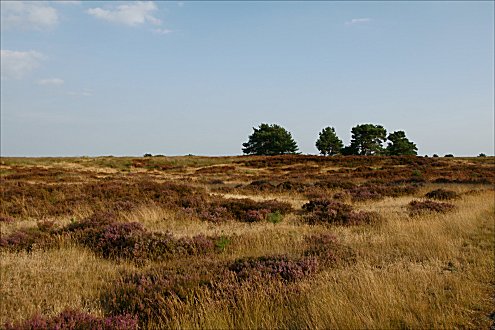
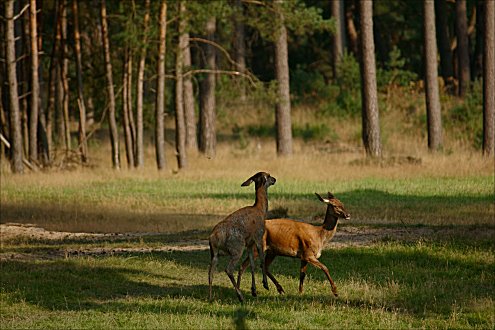
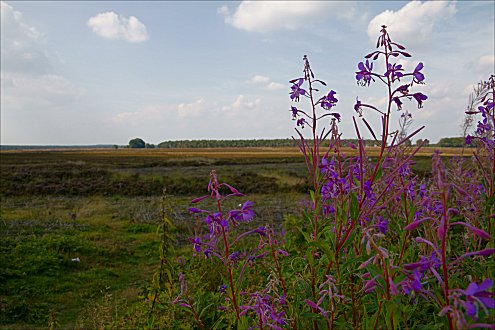
Hans Hermans Natuurdagboek: September 2009
De Hoge Veluwe
Gedicht: Een Gelders lied van A.C.W. Staring
kempis poetry magazine
© photos Hans Hermans
More in: Archive S-T, Hans Hermans Photos, MUSEUM OF NATURAL HISTORY - department of ravens & crows, birds of prey, riding a zebra, spring, summer, autumn, winter
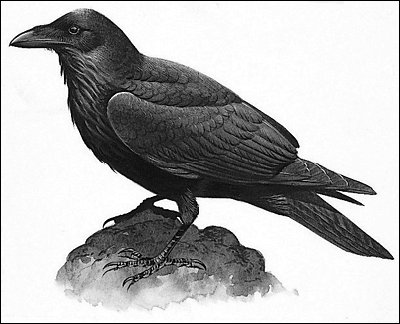
Guido Gezelle
(1830-1899)
De rave
Met zwart- en zwaren zwaai aan ‘t werken door de grauwe,
de zonnelooze locht, ik de oude rave aanschouwe;
die, roeiende op en dóór den schaars gewekten wind,
gelijk een dwalend spook, eilaas geen’ ruste en vindt.
Ze is zwart gebekt, gepoot, gekopt in ‘t zwarte; als kolen,
zoo staan heure oogen zwart, in hun’ twee zwarte holen
te blinken; rouwgewaad en duister doek omvangt
het duister wangedrocht, dat in de nevelen hangt.
Ze is stom! Ze ‘n uit geen woord en ‘t waaien van heur’ slagers
en hoort gij niet. Alzoo de zwarte doodendragers
stilzwijgend gaan, zoo gaat zij zwijgend op de lucht,
en wendt alhier aldaar heur’ zwarte ravenvlucht.
Wat wilt gij, duister spook! Waar gaat gij? Van wat steden
zijt gij, met damp en doom en ‘s winters duisterheden,
alhierwaards aangewaaid? Wat boodschap brengt gij? Van
wat rampe of tegenspoed zijt gij de bedeman?
Is ziek- of zuchtigheid, uit ‘s noordens grauwe landen;
is sterfte wederom, is hongersnood op handen?
Is moordaanslag, verraad de zin van uw vermaan;
of gaat de muil misschien des afgronds opengaan?
Geen woord! Dan, weg van hier, onzalige: gaat varen
alwaar nooit zonne en rijst; alwaar de grimme baren
staan ijsvaste overende, als rotsen; en waar nooit
noch blom noch blad den buik van moeder aarde en tooit!
Gaat aan! Of spreekt een woord, zoo de andere vogeldieren
te zomertijde doen, die in de bosschen zwieren:
ja, ‘s winters, als de snee’ heur laken heeft gespreid,
nog vinkt en klinkt het hier, vol vogelvlijtigheid.
En gij! De rave trekt, met trage vederslagen,
voorbij mij, zwaar en zwart gelijk nen kerkhofwagen,
en roept mij, onverwachts, terwijl zij henenvaart,
al in één enkel woord, heur’ winterboodschap: ‘Spaart!’
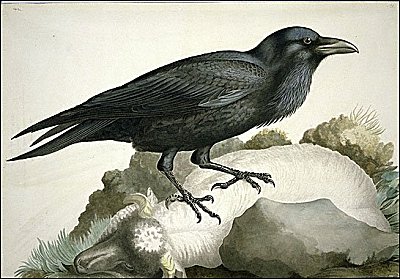
Guido Gezelle: De rave
kempis poetry magazine
![]()
More in: Department of Ravens & Crows, Gezelle, Guido
.jpg)

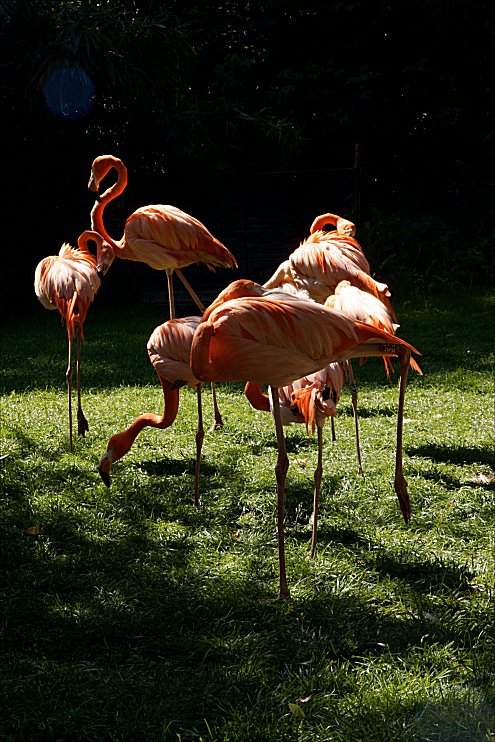
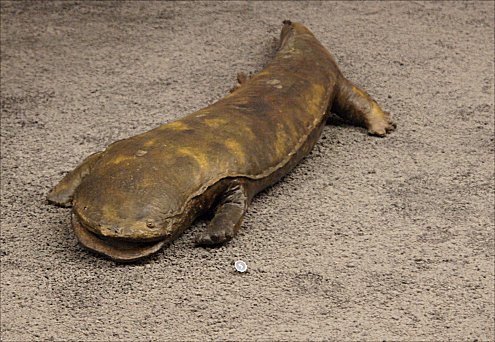
Friedrich Hölderlin
(1784-1843)
An die Natur
Da ich noch um deinen Schleier spielte,
Noch an dir, wie eine Blüte hing,
Noch dein Herz in jedem Laute fühlte,
Der mein zährtlichbebend Herz umfing,
Da ich noch mit Glauben und mit Sehnen
Reich, wie du, vor deinem Bilde stand,
Eine Stelle noch für meine Tränen,
Eine Welt für meine Liebe fand,
Da zur Sonne noch mein Herz sich wandte,
Als vernähme seine Töne sie,
Und die Sterne seine Brüder nannte
Und den Frühling Gottes Melodie,
Da im Hauche, der den Hain bewegte,
Noch dein Geist, dein Geist der Freude sich
In des Herzens stiller Welle regte,
Da umfingen goldne Tage mich.
Wenn im Tale, wo die Quell mich kühlte,
Wo der jugendlichen Sträuche Grün
Um die stillen Felsenwände spielte
Und der Aether durch die Zweige schien,
Wenn ich da, von Blüten übergossen,
Still und trunken ihren Othem trank
Und zu mir, von Licht und Glanz umflossen,
Aus den Höhn die goldne Wolke sank –
Wenn ich fern auf nackter Heide wallte,
Wo aus dämmernder Geklüfte Schoß
Der Titanensang der Ströme schallte
Und die Nacht der Wolken mich umschloß,
Wenn der Sturm mit seinen Wetterwogen
Mir vorüber durch die Berge fuhr
Und des Himmels Flammen mich umflogen,
Da erschienst du, Seele der Natur !
Oft verlor ich da mit trunknen Tränen
Liebend, wie nach langer Irre sich
In den Ozean die Ströme sehnen,
Schöne Welt ! in deiner Fülle mich;
Ach ! da stürzt ich mit den Wesen allen
Freudig aus der Einsamkeit der Zeit,
Wie ein Pilger in des Vaters Hallen,
In die Arme der Unendlichkeit.-
Seid gesegnet, goldne Kinderträume,
Ihr verbargt des Lebens Armut mir,
Ihr erzogt des Herzens gute Keime,
Was ich nie erringe, schenktet ihr !
O Natur ! an deiner Schönheit Lichte,
Ohne Müh und Zwang entfalteten
Sich der Liebe königliche Früchte,
Wie die Ernten in Arkadien.
Tot ist nun, die mich erzog und stillte,
Tot ist nun die jugendliche Welt,
Diese Brust, die einst ein Himmel füllte,
Tot und dürftig, wie ein Stoppelfeld;
Ach ! es singt der Frühling meinen Sorgen
Noch, wie einst, ein freundlich tröstend Lied,
Aber hin ist meines Lebens Morgen,
Meines Herzens Frühling ist verblüht.
Ewig muß die liebste Liebe darben,
Was wir liebten, ist ein Schatten nur,
Da der Jugend goldne Träume starben,
Starb für mich die freundliche Natur;
Das erfuhrst du nicht in frohen Tagen,
Daß so ferne dir die Heimat liegt,
Armes Herz, du wirst sie nie erfragen,
Wenn dir nicht ein Traum von ihr genügt.


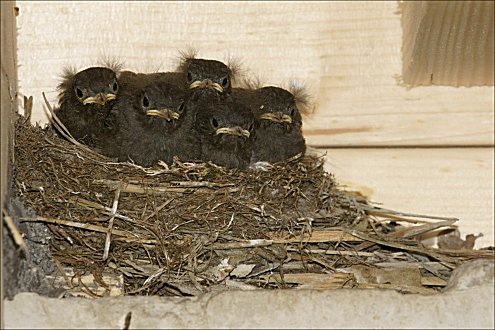
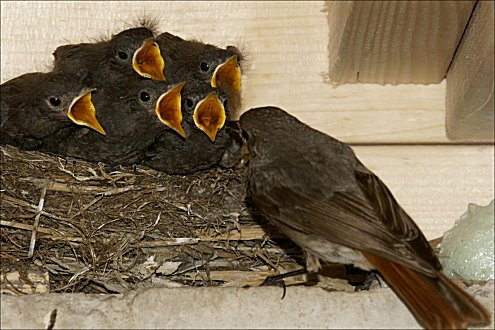
Hans Hermans Natuurdagboek Augustus 2009
Photos: Hans Hermans
Gedicht Friedrich Hölderlin: An die Natur
kempis poetry magazine
More in: Hans Hermans Photos, Hölderlin, Friedrich, MUSEUM OF NATURAL HISTORY - department of ravens & crows, birds of prey, riding a zebra, spring, summer, autumn, winter
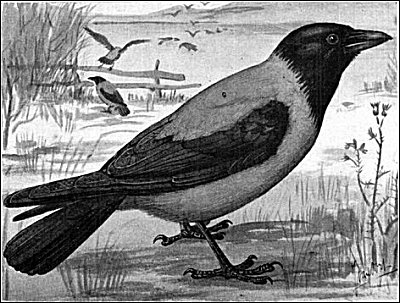
Guido Gezelle
(1830-1899)
Bonte kraaie
Bonte kraaie, waar, och armen,
kunt gij, voor uw’ taaie darmen,
voedsel vinden, worme of slek,
in dit daaglijkschbroodgebrek?
Eerde en water zijn gesloten,
overal ligt snee’ gegoten;
en, ‘k en zie geen mensch die ooit
kaf voor u of kooren strooit.
Gij en weet van schuur noch schelven,
van geen’ wortelen weg te delven;
en ge’n hebt geen’ spiere brood
bijgeleid, tot meerder nood!
Gij en grijpt, gelijk de gieren,
niet uw’ eigen mededieren;
ook en heet uw kerstenbrief
"eier-" u, noch "kiekendief."
Welke een’ armoe komt deswegen,
gij nu, binst den winter, tegen;
als, alom met snee’ bezaaid,
veld en wee van honger kraait.
In die snee’ zie’k, aller straten,
uw tweevoetig speur gelaten:
eet gij snee’, of, half vergaan,
laaft gij uwen dorst daaraan?
Of, hoe kunt gij, vast aan ‘t vliegen,
immers uwen buik bedriegen?
Kraait, of is hij, lijk uw’ stem,
zwijgende? Hoe snoert gij hem?
Neen, ‘k en hoor geen klachte u klagen,
schoon veel andere om hulpe vragen,
piepen, kriepen, om end om:
bonte kraaie, wordt gij stom?
Ei, onmooglijk is u ‘t leven,
stonde er niet dit woord geschreven,
dat daar Een is die u voedt,
en u nooddruft vinden doet.
Een, die de akkerlelie kleêren
weeft, als Salomons, vol eeren;
Een die, zonder naalde of naad,
vacht en veder groeien laat.
En, voorwaar, ‘k en zie geen lijken,
bonte kraaie, ooit in de dijken
liggen, van uw volk; of dood
uwe oorije, van hongersnood.
‘k Hoor de menschen bitter klagen,
van de kwade winterdagen;
‘k wete er, van gebrek en pijn,
louter, die gestorven zijn.
Gij betrouwt op God, onwetend
aan Zijn’ wetten vastgeketend;
die u vulte en voedsel schiep,
eer Hij u in ‘t leven riep.
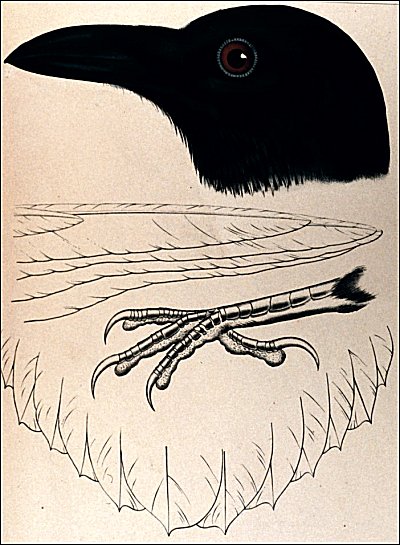
Hij heeft u twee vlerken neven
‘t lijf gezet, en kracht gegeven;
en twee oogen voert gij fijn
die scherp ziende en verre zijn.
Op die vlerken zie ‘k u roeien
door de lucht, en voorwaards spoeien:
in een omzien, stikken breed,
verre weg van mij gescheed.
Uit die oogen zie ‘k u spieden,
hooge boven land en lieden;
hooge boven huis en al:
of u God iet geven zal.
Bonte kraaie, uw schamel wezen
leert een’ schoone lesse aan dezen
die verkwisten ‘t daaglijksch brood,
etend, zonder etensnood.
Ach, verdeelden ze, alle dagen,
‘t brood, dat ze onzen Vader vragen,
met zoo menig armen bloed,
die ‘t, lijk gij, gaan zoeken moet?
Waar de neerstig nauwe boeren
hun gegraande peerden voeren,
trekkende aan den wagenlast,
daar is ‘t dat uw kooren wast.
Hun verlies komt u te baten,
en zoo zie ‘k u, achter straten,
raad- en roekloos van gebrek,
pekken in nen peerdendrek!
‘k Zie u neerstig ‘t leven halen,
‘k zie u nederig zegepralen
op een hoopken mesch, verblijd,
lijk sint Job, in zijnen tijd.
Bonte kraaie, ‘t doet mij dere
dat ik uwen troost begere,
en, eilaas, het doen daarvan
dat ik daar niet aan en kan!
Laat den winter eens verdwijnen,
laat de Aprilsche zonne schijnen:
dan, o kraaie, krijgt ge uw deel
in Gods goedheid, algeheel.
Dan zal God u voedselvollen
nooddruft doen op de eerdeschollen
vinden, en den ploeg omtrent,
die den veien akker wendt.
Dan, uw herte omhoog gerezen,
laat den buik eens weeldig wezen;
dan, te lijze of luider stem,
looft met alle vogels Hem!

Guido Gezelle: Bonte kraaie
kempis poetry magazine
More in: Department of Ravens & Crows, Gezelle, Guido
.jpg)
Edgar Allan Poe
(1809-1849)
poem
& Gustave Doré
(1832-1883)
illustrations
T H E R A V E N
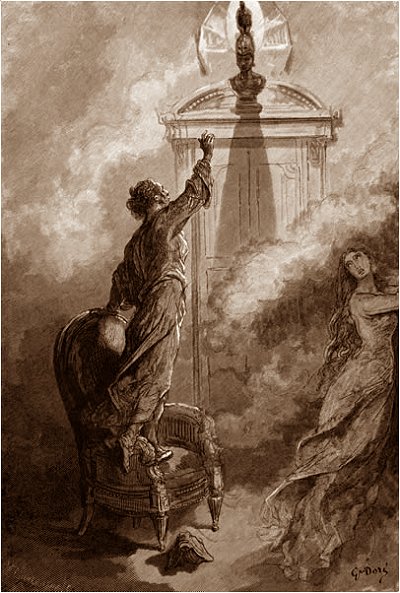
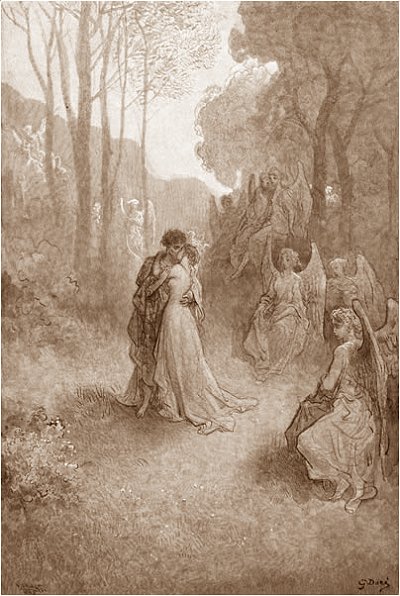
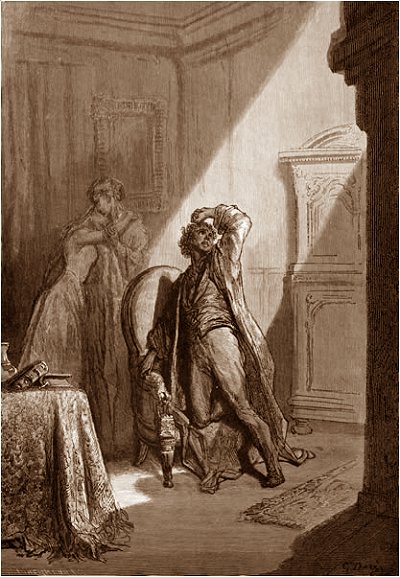
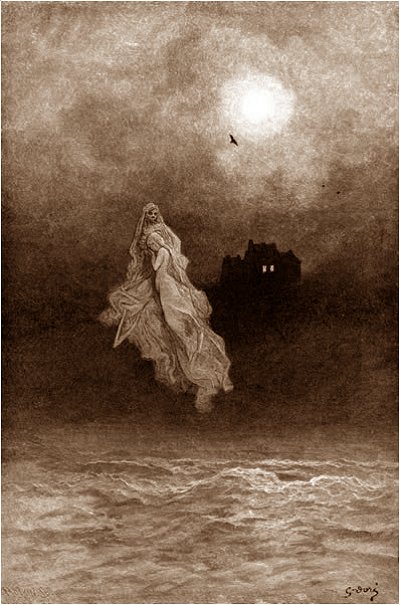
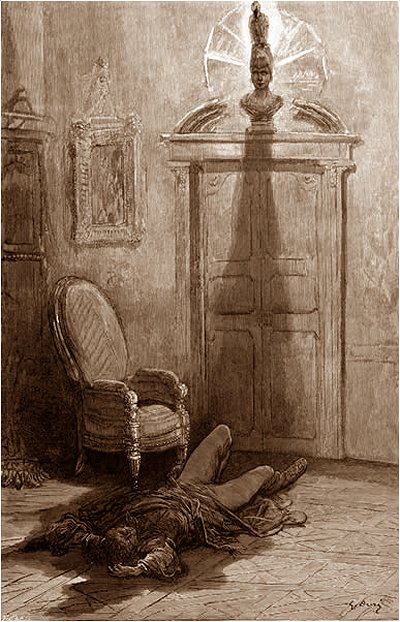

Edgar Allan Poe
The Raven
Once upon a midnight dreary, while I pondered weak and weary,
Over many a quaint and curious volume of forgotten lore,
While I nodded, nearly napping, suddenly there came a tapping,
As of some one gently rapping, rapping at my chamber door.
`’Tis some visitor,’ I muttered, `tapping at my chamber door –
![]() Only this, and nothing more.’
Only this, and nothing more.’
Ah, distinctly I remember it was in the bleak December,
And each separate dying ember wrought its ghost upon the floor.
Eagerly I wished the morrow; – vainly I had sought to borrow
From my books surcease of sorrow – sorrow for the lost Lenore –
For the rare and radiant maiden whom the angels named Lenore –
![]() Nameless here for evermore.
Nameless here for evermore.
And the silken sad uncertain rustling of each purple curtain
Thrilled me – filled me with fantastic terrors never felt before;
So that now, to still the beating of my heart, I stood repeating
`’Tis some visitor entreating entrance at my chamber door –
Some late visitor entreating entrance at my chamber door; –
![]() This it is, and nothing more,’
This it is, and nothing more,’
Presently my heart grew stronger; hesitating then no longer,
`Sir,’ said I, `or Madam, truly your forgiveness I implore;
But the fact is I was napping, and so gently you came rapping,
And so faintly you came tapping, tapping at my chamber door,
That I scarce was sure I heard you’ – here I opened wide the door; –
![]() Darkness there, and nothing more.
Darkness there, and nothing more.
Deep into that darkness peering, long I stood there wondering, fearing,
Doubting, dreaming dreams no mortal ever dared to dream to dream before
But the silence was unbroken, and the darkness gave no token,
And the only word there spoken was the whispered word, `Lenore!’
This I whispered, and an echo murmured back the word, `Lenore!’
![]() Merely this and nothing more.
Merely this and nothing more.
Back into the chamber turning, all my soul within me burning,
Soon again I heard a tapping somewhat louder than before.
`Surely,’ said I, `surely that is something at my window lattice;
Let me see then, what thereat is, and this mystery explore –
Let my heart be still a moment and this mystery explore; –
![]() ‘Tis the wind and nothing more!’
‘Tis the wind and nothing more!’
Open here I flung the shutter, when, with many a flirt and flutter,
In there stepped a stately raven of the saintly days of yore.
Not the least obeisance made he; not an instant stopped or stayed he;
But, with mien of lord or lady, perched above my chamber door –
Perched upon a bust of Pallas just above my chamber door –
![]() Perched, and sat, and nothing more.
Perched, and sat, and nothing more.
Then this ebony bird beguiling my sad fancy into smiling,
By the grave and stern decorum of the countenance it wore,
`Though thy crest be shorn and shaven, thou,’ I said, `art sure no craven.
Ghastly grim and ancient raven wandering from the nightly shore –
Tell me what thy lordly name is on the Night’s Plutonian shore!’
![]() Quoth the raven, `Nevermore.’
Quoth the raven, `Nevermore.’
Much I marvelled this ungainly fowl to hear discourse so plainly,
Though its answer little meaning – little relevancy bore;
For we cannot help agreeing that no living human being
Ever yet was blessed with seeing bird above his chamber door –
Bird or beast above the sculptured bust above his chamber door,
![]() With such name as `Nevermore.’
With such name as `Nevermore.’
But the raven, sitting lonely on the placid bust, spoke only,
That one word, as if his soul in that one word he did outpour.
Nothing further then he uttered – not a feather then he fluttered –
Till I scarcely more than muttered `Other friends have flown before –
On the morrow will he leave me, as my hopes have flown before.’
![]() Then the bird said, `Nevermore.’
Then the bird said, `Nevermore.’
Startled at the stillness broken by reply so aptly spoken,
`Doubtless,’ said I, `what it utters is its only stock and store,
Caught from some unhappy master whom unmerciful disaster
Followed fast and followed faster till his songs one burden bore –
Till the dirges of his hope that melancholy burden bore
![]() Of “Never-nevermore.”‘
Of “Never-nevermore.”‘
But the raven still beguiling all my sad soul into smiling,
Straight I wheeled a cushioned seat in front of bird and bust and door;
Then, upon the velvet sinking, I betook myself to linking
Fancy unto fancy, thinking what this ominous bird of yore –
What this grim, ungainly, gaunt, and ominous bird of yore
![]() Meant in croaking `Nevermore.’
Meant in croaking `Nevermore.’
This I sat engaged in guessing, but no syllable expressing
To the fowl whose fiery eyes now burned into my bosom’s core;
This and more I sat divining, with my head at ease reclining
On the cushion’s velvet violet lining that the lamp-light gloated o’er,
But whose velvet violet lining with the lamo-light gloating o’er,
![]() She shall press, ah, nevermore!
She shall press, ah, nevermore!
Then, methought, the air grew denser, perfumed from an unseen censer
Swung by angels whose faint foot-falls tinkled on the tufted floor.
`Wretch,’ I cried, `thy God hath lent thee – by these angels he has sent thee
Respite – respite and nepenthe from tha memories of Lenore!
Quaff, oh quaff this kind nepenthe, and forget this lost Lenore!’
![]() Quoth the raven, `Nevermore.’
Quoth the raven, `Nevermore.’
`Prophet!’ said I, `thing of evil! – prophet still, if bird or devil! –
Whether tempter sent, or whether tempest tossed thee here ashore,
Desolate yet all undaunted, on this desert land enchanted –
On this home by horror haunted – tell me truly, I implore –
Is there – is there balm in Gilead? – tell me – tell me, I implore!’
![]() Quoth the raven, `Nevermore.’
Quoth the raven, `Nevermore.’
`Prophet!’ said I, `thing of evil! – prophet still, if bird or devil!
By that Heaven that bends above us – by that God we both adore –
Tell this soul with sorrow laden if, within the distant Aidenn,
It shall clasp a sainted maiden whom the angels named Lenore –
Clasp a rare and radiant maiden, whom the angels named Lenore?’
![]() Quoth the raven, `Nevermore.’
Quoth the raven, `Nevermore.’
`Be that word our sign of parting, bird or fiend!’ I shrieked upstarting –
`Get thee back into the tempest and the Night’s Plutonian shore!
Leave no black plume as a token of that lie thy soul hath spoken!
Leave my loneliness unbroken! – quit the bust above my door!
Take thy beak from out my heart, and take tha form from off my door!’
![]() Quoth the raven, `Nevermore.’
Quoth the raven, `Nevermore.’
And the raven, never flitting, still is sitting, still is sitting
On the pallid bust of Pallas just above my chamber door;
And his eyes have all the seeming of a demon’s that is dreaming,
And the lamp-light o’er him streaming throws his shadow on the floor;
And my soul from out that shadow that lies floating on the floor
![]() Shall be lifted – nevermore!
Shall be lifted – nevermore!
T H E E N D
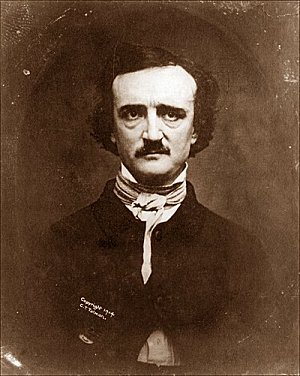
Edgar Allan Poe

Gustave Doré
Edgar Allan Poe & Gustave Doré
The Raven part II
fleursdumal.nl digital magazine
More in: Department of Ravens & Crows, Illustrators, Illustration, Poe, Edgar Allan
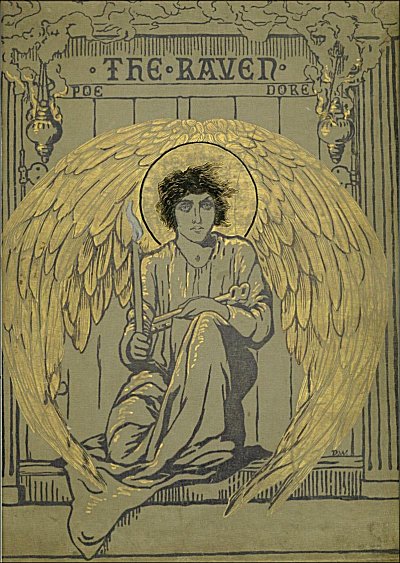
Edgar Allan Poe
(1809-1849)
& Gustave Doré
(1832-1883)
T H E R A V E N
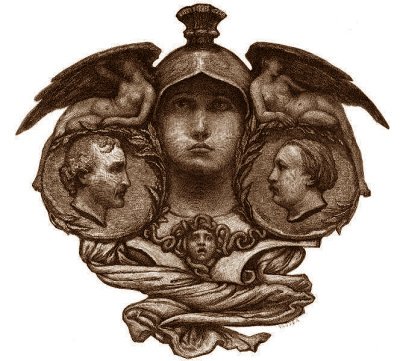

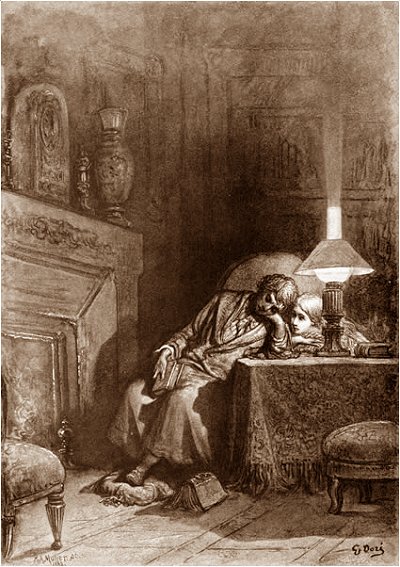

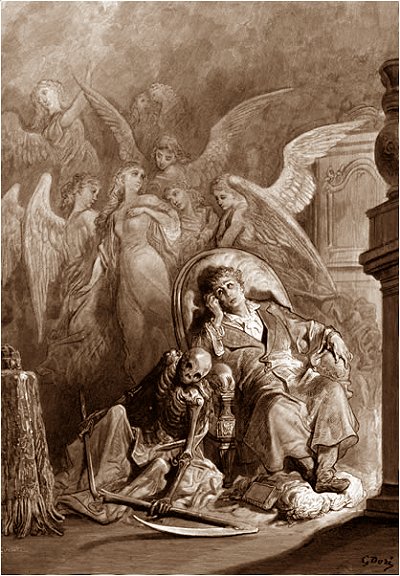
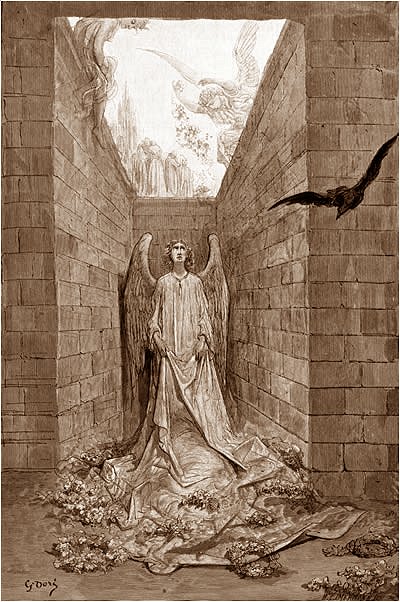
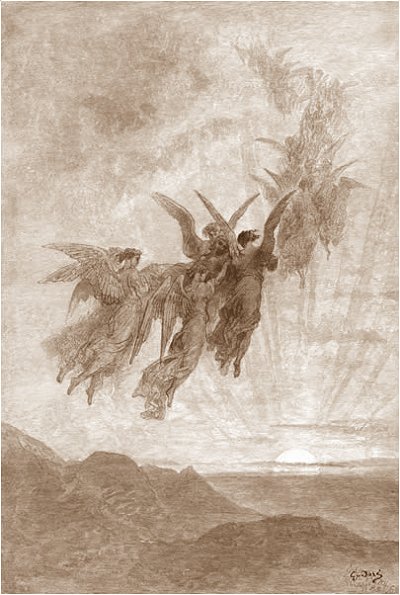
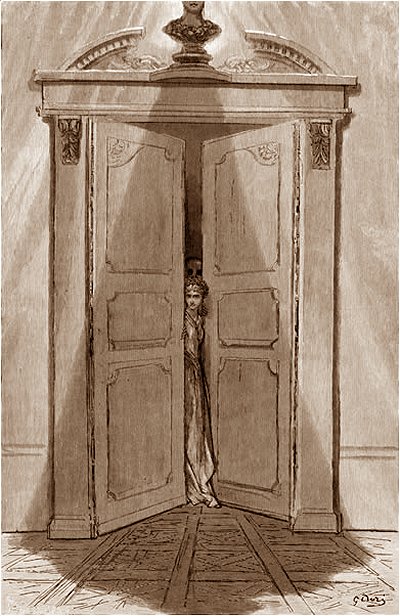
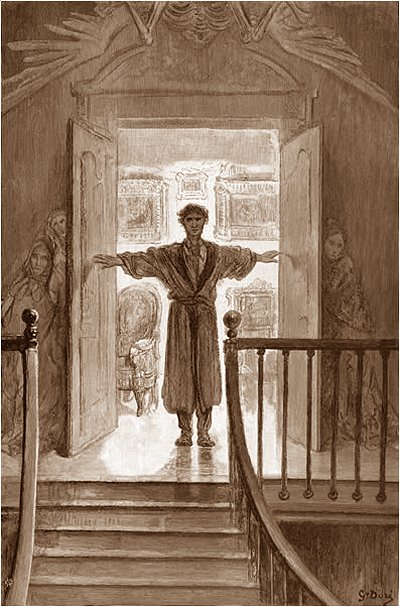
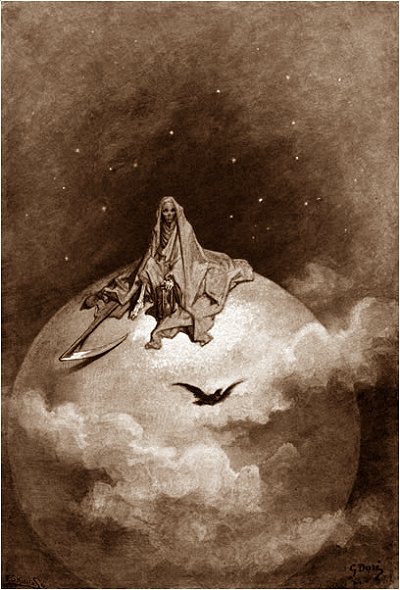
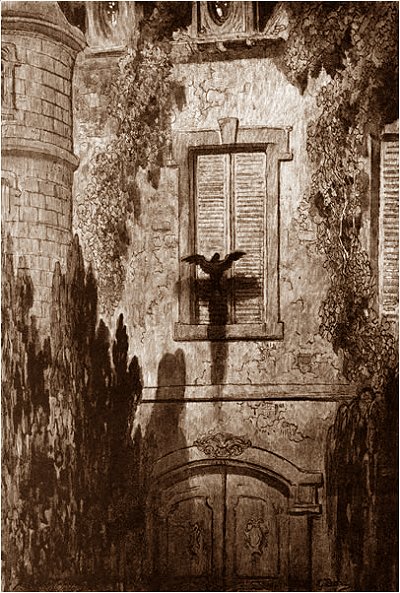
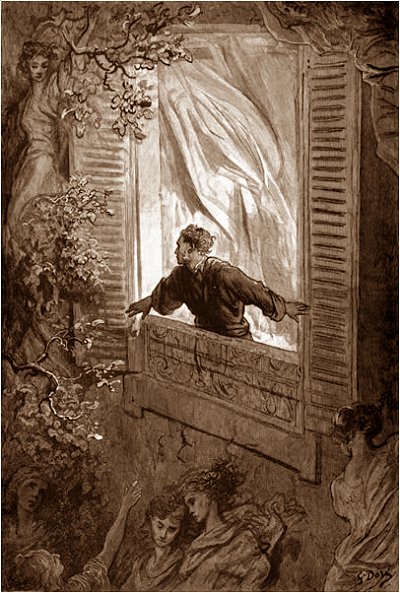
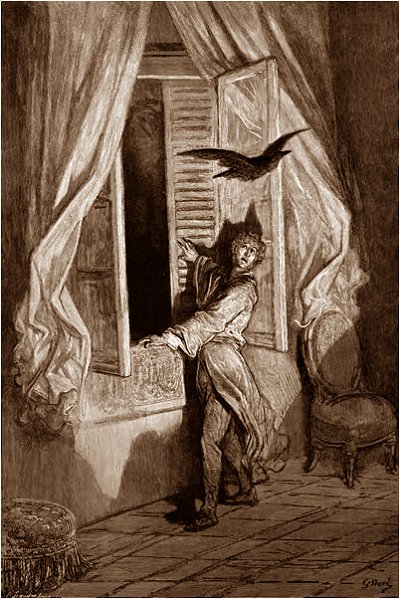
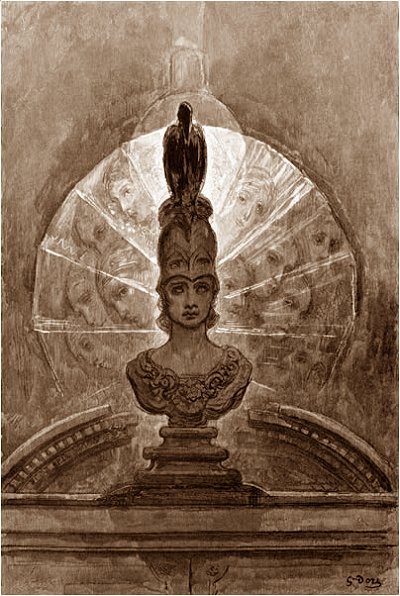
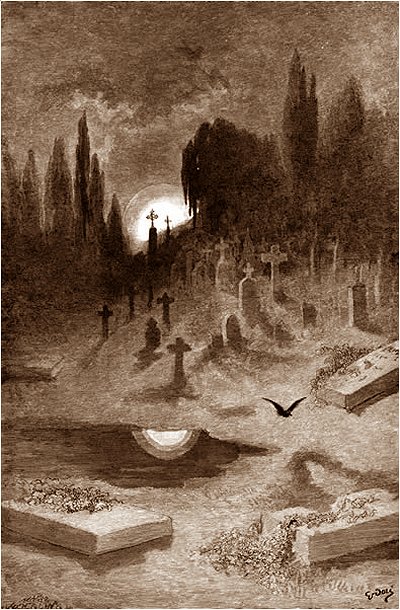
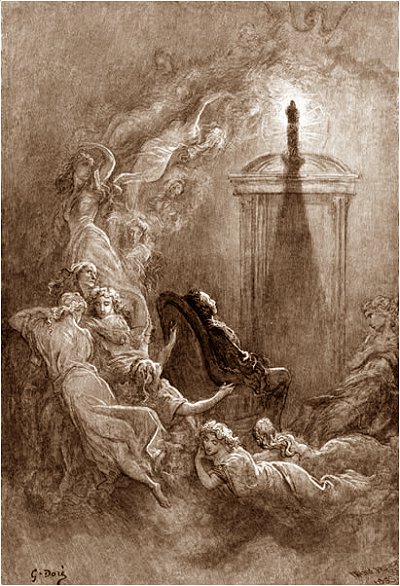
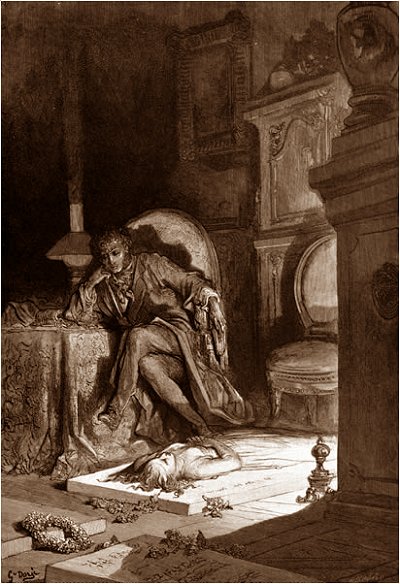

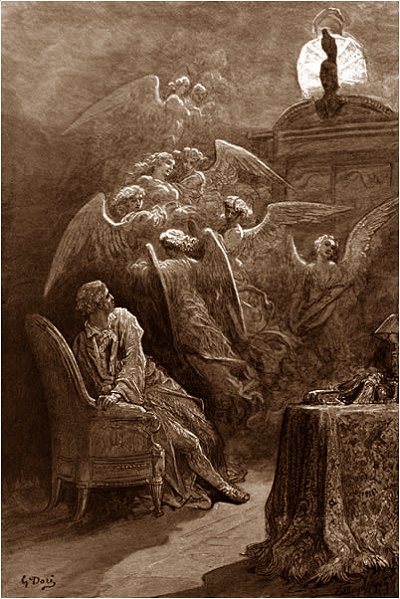
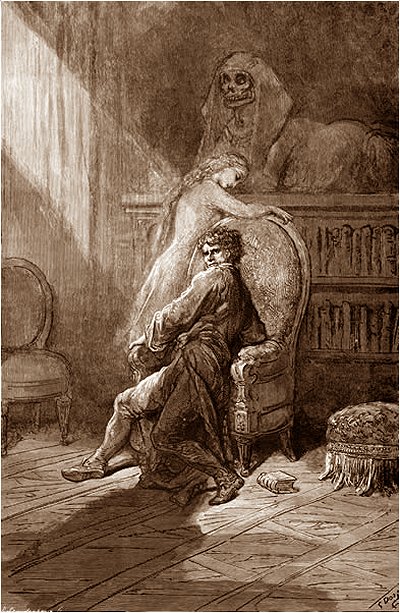
Edgar Allan Poe & Gustave Doré:
The Raven – part I
kempis poetry magazine
More in: Department of Ravens & Crows, Poe, Edgar Allan
.jpg)
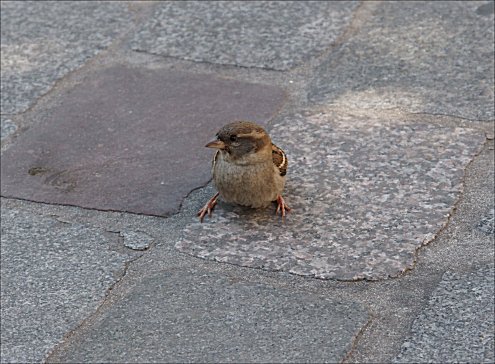

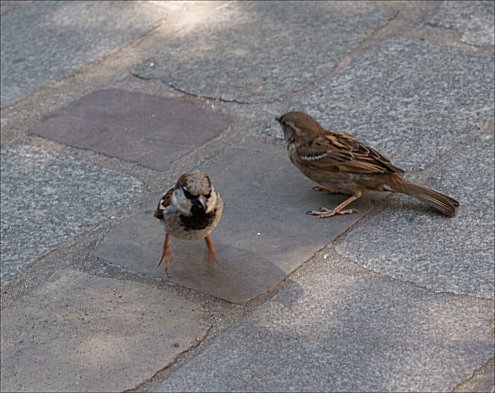
Johann Wolfgang von Goethe
(1749 – 1832)
Es fing ein Knab’ ein Vögelein
Es fing ein Knab’ ein Vögelein,
Hm! Hm!
Da lacht’ er in den Käfig ’nein
Hm! Hm!
So! So!
Hm! Hm!
Der freut’ sich traun so läppisch
Hm! Hm!
Und griff hinein so täppisch,
Hm! Hm!
So! So!
Hm! Hm!
Da flog das Meislein auf ein Haus
Hm! Hm!
Und lacht den dummen Buben aus,
Hm! Hm!
So! So!
Hm! Hm!
.jpg)

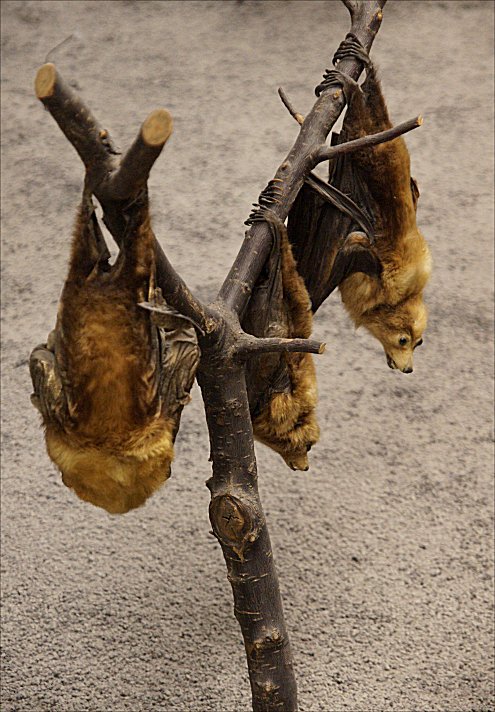
Hans Hermans Natuurdagboek Juli 2009
Foto’s: Hans Hermans
Gedicht: Johann Wolfgang von Goethe
kemp=mag poetry magazine – magazine for art & literature
More in: Goethe, Johann Wolfgang von, Hans Hermans Photos, MUSEUM OF NATURAL HISTORY - department of ravens & crows, birds of prey, riding a zebra, spring, summer, autumn, winter
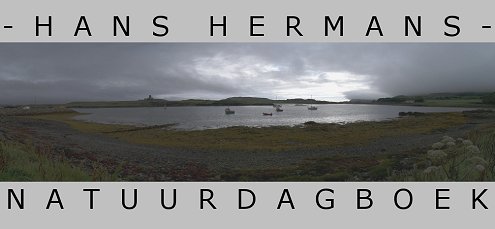
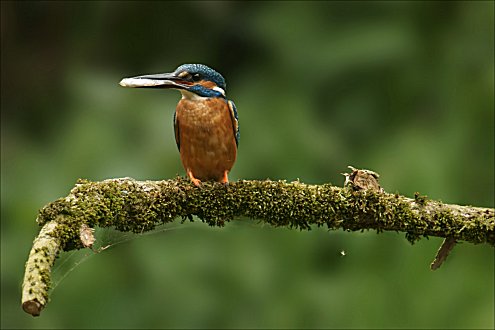
W i l l i a m B l a k e
(1757-1827)
Seven poems from: Songs of Innocence
& Songs of Experience
Introduction
Hear the voice of the Bard,
Who present, past, and future, sees;
Whose ears have heard
The Holy Word
That walked among the ancient trees;
Calling the lapsed soul,
And weeping in the evening dew;
That might control
The starry pole,
And fallen, fallen light renew!
‘O Earth, O Earth, return!
Arise from out the dewy grass!
Night is worn,
And the morn
Rises from the slumbrous mass.
‘Turn away no more;
Why wilt thou turn away?
The starry floor,
The watery shore,
Is given thee till the break of day.’
The Blossom
Merry, merry sparrow!
Under leaves so green
A happy blossom
Sees you, swift as arrow,
Seek your cradle narrow,
Near my bosom.
Pretty, pretty robin!
Under leaves so green
A happy blossom
Hears you sobbing, sobbing,
Pretty, pretty robin,
Near my bosom.

Spring
Sound the flute!
Now it’s mute!
Birds delight,
Day and night,
Nightingale,
In the dale,
Lark in sky, –
Merrily,
Merrily, merrily to welcome in the year.
Little boy,
Full of joy;
Little girl,
Sweet and small;
Cock does crow,
So do you;
Merry voice,
Infant noise;
Merrily, merrily to welcome in the year.
Little lamb,
Here I am;
Come and lick
My white neck;
Let me pull
Your soft wool;
Let me kiss
Your soft face;
Merrily, merrily we welcome in the year.
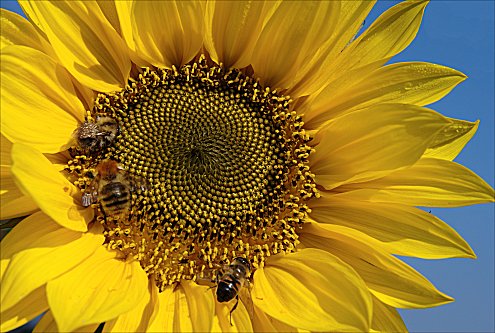
Ah, Sunflower
Ah, sunflower, weary of time,
Who countest the steps of the sun;
Seeking after that sweet golden clime
Where the traveller’s journey is done;
Where the Youth pined away with desire,
And the pale virgin shrouded in snow,
Arise from their graves, and aspire
Where my Sunflower wishes to go!
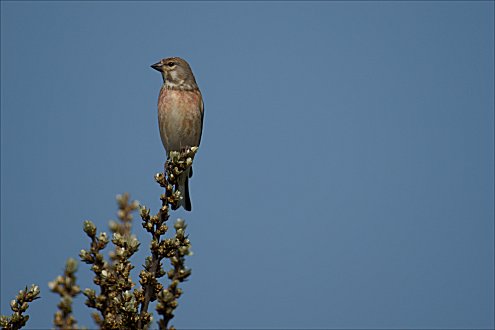
The Lily
The modest Rose puts forth a thorn,
The humble sheep a threat’ning horn:
While the Lily white shall in love delight,
Nor a thorn nor a threat stain her beauty bright.
Laughing Song
When the green woods laugh with the voice of joy,
And the dimpling stream runs laughing by;
When the air does laugh with our merry wit,
And the green hill laughs with the noise of it;
When the meadows laugh with lively green,
And the grasshopper laughs in the merry scene;
When Mary and Susan and Emily
With their sweet round mouths sing ‘Ha ha he!’
When the painted birds laugh in the shade,
Where our table with cherries and nuts is spread:
Come live, and be merry, and join with me,
To sing the sweet chorus of ‘Ha ha he!’

The Echoing Green
The sun does arise,
And make happy the skies;
The merry bells ring
To welcome the Spring;
The skylark and thrush,
The birds of the bush,
Sing louder around
To the bells’ cheerful sound;
While our sports shall be seen
On the echoing green.
Old John, with white hair,
Does laugh away care,
Sitting under the oak,
Among the old folk.
They laugh at our play,
And soon they all say,
‘Such, such were the joys
When we all–girls and boys –
In our youth-time were seen
On the echoing green.’
Till the little ones, weary,
No more can be merry:
The sun does descend,
And our sports have an end.
Round the laps of their mothers
Many sisters and brothers,
Like birds in their nest,
Are ready for rest,
And sport no more seen
On the darkening green.
Hans Hermans Natuurdagboek- May 2009
Poems: Williem Blake – Photos: Hans Hermans
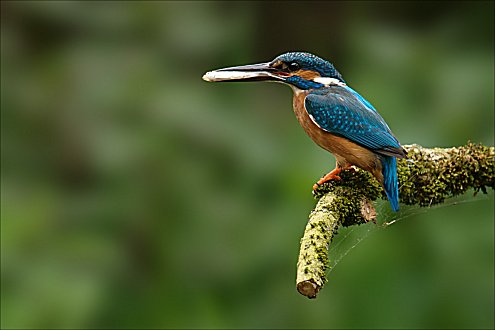
© hans hermans
KEMP=MAG poetry magazine – magazine for art & literature
More in: Blake, William, Hans Hermans Photos, MUSEUM OF NATURAL HISTORY - department of ravens & crows, birds of prey, riding a zebra, spring, summer, autumn, winter
.jpg)
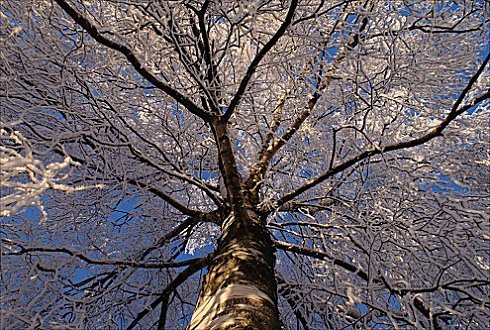
E m i l y D i c k i n s o n
(1830 – 1886)
A Light exists in Spring
A Light exists in Spring
Not present on the Year
At any other period —
When March is scarcely here
A Color stands abroad
On Solitary Fields
That Science cannot overtake
But Human Nature feels.
It waits upon the Lawn,
It shows the furthest Tree
Upon the furthest Slope you know
It almost speaks to you.
Then as Horizons step
Or Noons report away
Without the Formula of sound
It passes and we stay —
A quality of loss
Affecting our Content
As Trade had suddenly encroached
Upon a Sacrament.
Natuurdagboek Hans Hermans – April 2009
Poem: Emily Dickinson – Photos: Hans Hermans


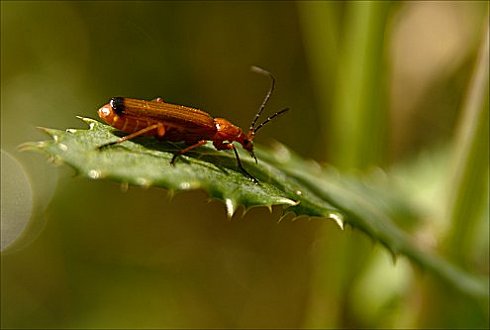
© photos hans hermans
fleursdumal.nl – magazine for art & literature
More in: 4SEASONS#Spring, Archive C-D, Archive G-H, Dickinson, Emily, Hans Hermans Photos
Thank you for reading Fleurs du Mal - magazine for art & literature